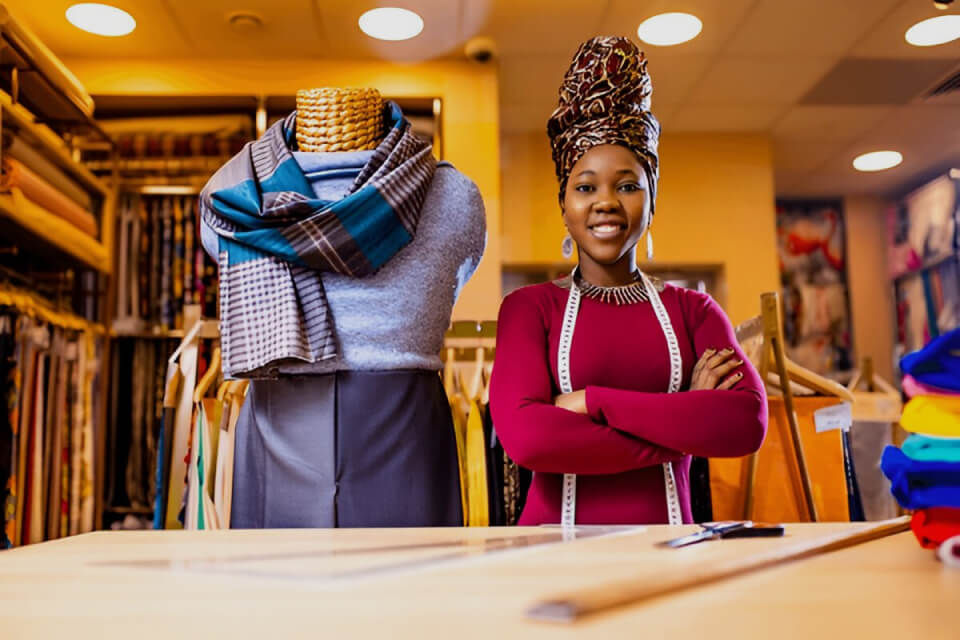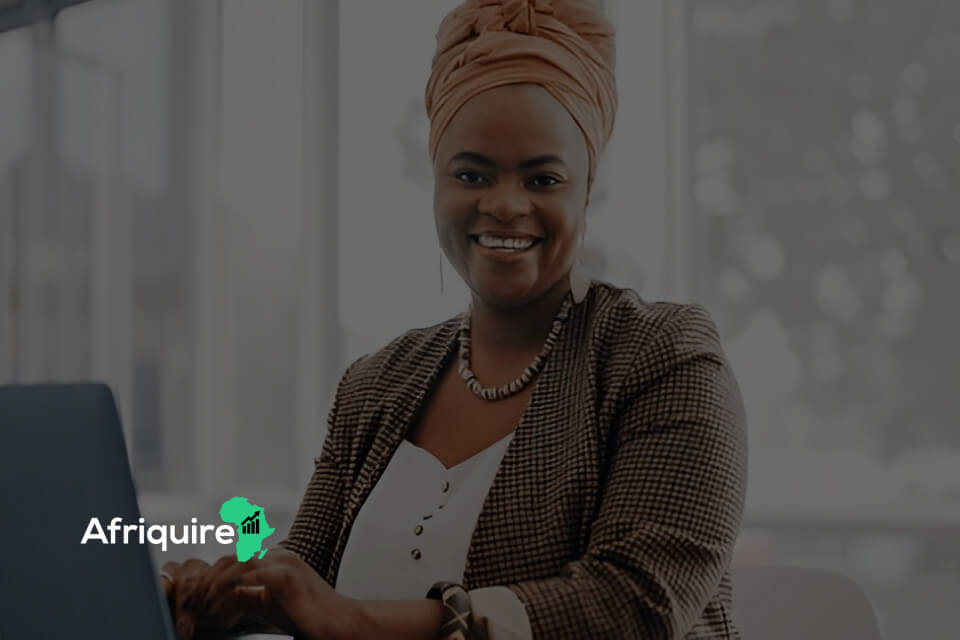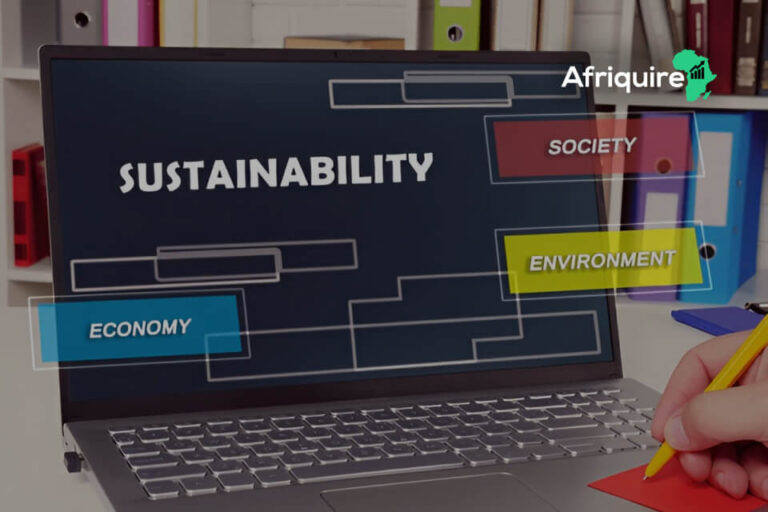- Introduction
- Investment Trends in Women-Led Startups
- Success Stories of Women Entrepreneurs with Venture Capital
- Challenges Faced by Women Entrepreneurs in Securing Funding
- Programs and Initiatives Supporting Women in Venture Capital
- Future Opportunities for Women Entrepreneurs
- Frequently Asked Questions (FAQs)
- Conclusion
Introduction
Venture capital is making a big difference for African women entrepreneurs. Many women in Africa are starting businesses, but they often find it hard to get the money they need to grow. Venture capital—money from investors who want to help businesses grow—can change that. It helps women build stronger businesses, create jobs, and support the economy. Let’s look at the impact of venture capital on African women entrepreneurs. We’ll also look into investment trends in women-led businesses, challenges women face, their success stories, programs that give women the support they need and opportunities that women should take more advantage of.
Overview of Women Entrepreneurship in Africa
A quick look at women entrepreneurs in Africa shows that Africa has more female entrepreneurs than any other region in the world. About 24% of women in Africa run their own businesses. In fact, women make up 58% of the continent’s self-employed population. That’s a lot! But even though many women run small or medium-sized businesses, very few have the support or money to grow bigger. One big reason is that women often face cultural, social, or structural challenges that make it harder for them to succeed like men do.
The Role of Venture Capital in Business Growth
Venture capital gives more than just money. It also offers mentorship, business advice, and important connections. For women, this kind of help can be a game-changer. With venture capital, women-led startups can grow faster, build better products, and reach bigger markets. But right now, women-led startups in Africa get only about 2% of all VC funding. That’s a small slice of the pie, and it shows we need to do more to support them.
Why Focus on Women-Led Startups
When women make money, they don’t just spend it on themselves—they invest in their families and communities. In fact, studies show that women reinvest up to 90% of their income in things like education, health, and housing. That means helping women succeed also helps everyone around them. Plus, women bring new ideas and fresh ways of doing things. Even so, they’re often missing from big industries like tech and finance. Supporting women in these areas can boost the economy for everyone.
Current Funding Gap and Gender Disparities
Let’s look at the numbers. In 2024, women-led startups in Africa raised only $48 million, while startups run by men raised more than $2 billion. In Nigeria, only 10% of women-led startups got funding between 2019 and 2023. That’s a huge gap. Many women depend on grants, not commercial investments, which means they can’t grow as fast. Why does this happen? Often, it’s due to investor bias, small networks, and social norms that hold women back.
Scope and Purpose of the Discussion
This discussion is not just about numbers. It’s about real people trying to build businesses and change lives. It also looks at how African women can connect with global investors, build strong relationships, and understand how venture capital deals work. These skills can help them get the support they need to grow. If we can fix the funding gap, women entrepreneurs in Africa can go even further and do even more.

Investment Trends in Women-Led Startups
Data on Venture Capital Funding to Female Founders in Africa
Have you ever wondered how much funding female founders get? Sadly, not much. In early 2025, women-led startups received only 2% of total venture capital in Africa. That’s even less than previous years. This doesn’t match Africa’s high rate of female entrepreneurship. So, while more women are starting businesses, very few get the big support they need to grow.
Sectors Attracting the Most Funding
Some sectors, like health-tech, fintech, and e-commerce, are seeing more money go to women-led startups. That’s good news! But many women are still left out of big tech industries like enterprise software and deep tech, where the biggest investments happen. If we want real change, we need to support women across all industries—not just a few.
Regional Differences in Funding Patterns
Some countries are doing better than others. For example, Kenya has made real progress by creating policies and programs that help women-led businesses. But in places like Nigeria and South Africa, the funding gap is still large. Women-led startups there often get less than 10% of all investments. This shows that we need to create local solutions that fit each country’s situation.
Emerging Interest from Gender-lens Investors
There is some good news. More investors are now using gender-lens investing. This means they focus on supporting women-led businesses on purpose. These investors believe that backing women not only creates strong returns but also helps communities. More funds are now being created to focus only on female founders. This gives hope for the future.
Shifts in Investor Behavior Toward Women-led Ventures
Are investors changing, especially in mindset? Yes. Slowly but surely. More investors are becoming aware of their own biases and are starting to see the value of women-led businesses. Programs that mentor women, train them, and connect them to investors are starting to make a difference. These small changes are helping to build trust and give women a fair chance.
Success Stories of Women Entrepreneurs with Venture Capital
Venture capital is changing the game for African women in business. It gives them money, support, and a chance to grow their ideas into real companies. Many women have used this help to grow their businesses, create jobs, and lift up their communities. Their stories show how money, advice, and strong connections can turn dreams into success.
Notable Women Founders and Their Growth Stories
Let’s look at a few women who have grown their businesses with venture capital. First, Oluwatosin Olaseinde started a small fintech company called Ladda. She got $500,000 in funding from the IFC-Seedstars Startup Program. That helped her grow and manage over $700,000 in assets. Then there’s Yetunde Adeyemi of Active Foods Limited. She started with just seven workers but now has over 250 staff members, thanks to funding and advice from the World Bank’s We-Fi project. Another great example is Olayinka Dosunmu of Forcefield Furnishing & Finishing. With help from the Digital Cashflow Loan Program, she was able to improve her factory and attract more investment. These stories show how venture capital helps women build strong businesses.
How Venture Capital Funding Transformed Their Businesses
With venture capital, these women were able to do much more. For example, they could buy better tools, build bigger spaces, and hire more workers. They also got advice from experts and made important connections. This helped them grow faster and smarter. Instead of staying small, their businesses could now serve more people and do more good. Clearly, funding made a big difference.
Lessons Learned From Their Journeys
There are many lessons to learn from these women.
- First, never give up. Many of them faced tough times but kept going.
- Second, mentorship matters. Having good advice and support helped them make better choices.
- Third, it’s important to build strong relationships with investors. This made it easier to get funding.
- Also, they learned how to make smart deals that didn’t give away too much control.
These lessons are helpful for anyone who wants to start a business.
Impact on Job Creation and Community Development
When women-led businesses grow, they help more than just themselves. They create jobs, especially for young people. For example, Active Foods Limited now employs hundreds of Nigerian youths. That helps fight unemployment. These businesses also buy from local sellers and help other women get ahead. So, the success of one business can lift up a whole community.
Role Models Inspiring the Next Generation
These women don’t just build businesses—they also inspire others. Young girls and women look up to them and feel encouraged to start their own businesses. Leaders like Maya Horgan Famodu, Eunice Ajim, and Fatoumata Bâ are making big moves in venture capital. They are showing that women can lead, grow, and invest too. Because of them, more women are stepping forward with confidence.

Challenges Faced by Women Entrepreneurs in Securing Funding
Even though many women are succeeding, it’s not always easy. They still face big problems when trying to get venture capital. Let’s look at some of the most common challenges and how to overcome them.
Gender Bias and Investor Perceptions
Sometimes, investors don’t take women as seriously as men. They may think women can’t lead big companies. Because of this, women often get less money. Changing these wrong ideas takes time, but more female investors and leaders are helping shift things.
Limited Access to Investor Networks
Another problem is that women often don’t know the right people. Many investors only fund businesses they hear about through their networks. So, if a woman isn’t in those networks, she may miss out. Joining women-led business groups and attending pitch events can help fix this.
Balancing Cultural Norms and Business Needs
In many places, women are expected to take care of their homes and families. This can make it harder to focus fully on business. It’s not easy to balance both, but support systems and flexible funding programs can make things better.
Lack of Mentorship and Representation
It’s hard to succeed without someone to show you the way. Sadly, there aren’t enough women mentors in the business world. This makes it harder for new women entrepreneurs to learn and grow. But when more women-led funds and mentorship programs are created, the whole system improves.
Structural Barriers in The Funding Process
Getting venture capital often means going through tough legal and financial steps. These steps can be confusing, especially for new entrepreneurs. That’s why training programs and simpler deal structures are so important. They help more women understand the process and succeed.
Programs and Initiatives Supporting Women in Venture Capital
Women entrepreneurs in Africa are doing amazing things, but they still face many challenges—especially when it comes to getting funding. Luckily, more programs and groups are stepping in to help. These efforts are making it easier for women to find venture capital, grow their businesses, and make a bigger impact.
Accelerators and Incubators Focused on Women
Many business training programs now focus on helping women. These are called accelerators and incubators, and they give women training, mentors, and networking chances. For example, groups like She Leads Africa and Women in Tech Africa offer support that is built just for women. They help female founders learn how to grow strong businesses and get ready to meet investors.
Grant and Funding Programs for Female Founders
There are also funding programs that give women money without asking for business ownership in return. These are called grants, and they help women test ideas, grow their teams, and attract more investors later on. Groups like the African Women’s Development Fund and the Tony Elumelu Foundation offer this kind of help so that more women can succeed in business.
Venture Capital Firms with a Gender-lens Investing Strategy
Some venture capital (VC) firms now choose to invest in women-led businesses on purpose. This is called gender-lens investing. Firms like FirstCheck Africa and Aruwa Capital Management are doing great work in this space. Their goal is to support more women founders and close the funding gap. Although there’s still a long way to go, these firms are helping to make change happen.
NGO and Government-Backed Initiatives
Governments and international groups are also stepping in to help. One example is the African Development Bank’s program called AFAWA, which gives money and training to businesses owned by women. These efforts help fix the bigger problems that stop women from getting the money they need to grow.
Community-led Support Networks
Community support is also very important. Groups like the African Women Entrepreneurship Programme bring women together to share advice, learn from each other, and build strong networks. These connections help women feel more confident and ready to talk to investors.
Future Opportunities for Women Entrepreneurs
Things are getting better for women in business. Many new opportunities are on the way—and they could change the future.
Growing Investor Interest in Diversity and Inclusion
These days, more investors care about diversity and inclusion. That means they want to invest in people from different backgrounds, including women. This change is opening new doors for female entrepreneurs to get the funding they need.
Digital Platforms Connecting Women to Capital
The internet is making it easier for women to find funding. Digital platforms and crowdfunding websites help women meet investors from all over the world. This means they don’t have to rely only on local sources of funding.
Potential in Underfunded Sectors
Many women are building businesses in important sectors like health-tech, education, and online shopping. These areas don’t get a lot of attention from investors yet, but they have big potential. Investors are now starting to notice—and that’s great news for women leading in these fields.
Role of Education and Mentorship in Scaling Businesses
Education and guidance matter a lot. When women learn how to build strong investor relationships and how to structure VC deals, they become more confident and ready. Mentorship also helps them avoid mistakes and make smart business decisions.
Policy Changes Promoting Equity in Venture Capital
Finally, governments are starting to change the rules to support gender equity. These policy changes aim to break down old barriers and make the world of investing fairer for women. This could lead to more inclusive funding across the continent.

Frequently Asked Questions (FAQs)
1. Why do women get less venture capital funding?
Because of investor bias, small networks, and difficult business systems.
2. What is gender-lens investing?
It’s when investors focus on helping women-led or gender-diverse businesses.
3. How can women increase their chances of getting funding?
By learning how funding works, building good networks, and joining programs that offer mentorship.
4. Are there funds that support only women-led businesses in Africa?
Yes! Some Venture Capital firms and grants focus only on female founders.
5. What does venture capital do for women in business?
It gives them the money, support, and networks they need to grow strong businesses.
Conclusion
In conclusion, the impact of venture capital on African women entrepreneurs is powerful but still limited by significant challenges. Even though Africa has some of the highest numbers of women running businesses, they get only a small share of VC funding. That needs to change.
By joining programs like accelerators, learning how to talk to investors, and understanding how to structure deals, women can break past these barriers. And when more women-led businesses get funded, Africa’s economy grows stronger, fairer, and more sustainable—for everyone.




3 thoughts on “Venture Capital: Fuel Inclusive Growth with Women in Lead”
I think other web-site proprietors should take this web site as an model, very clean and magnificent user genial style and design, let alone the content. You’re an expert in this topic!
so much fantastic information on here, : D.
I used to be very pleased to seek out this net-site.I wanted to thanks to your time for this excellent read!! I positively enjoying each little bit of it and I’ve you bookmarked to take a look at new stuff you weblog post.